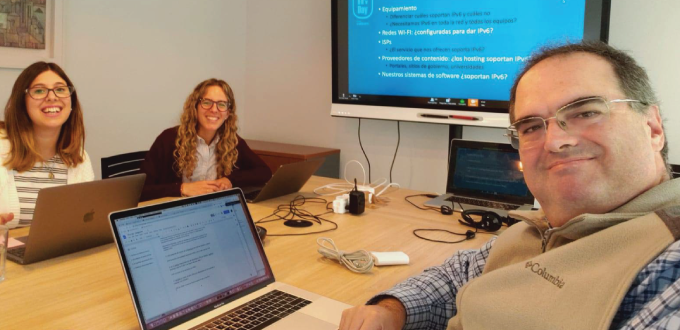A Springboard to IPv6: More than Four Hours of Intense Training
27/06/2019

“A new opportunity to drive our regional Internet into the future.” These were the words with which Carlos Martinez, LACNIC CTO, opened the webinar organized by the RIR to celebrate the seventh anniversary of Global IPv6 Launch and IPv6 Day.
The LACNIC webinar had a duration of more than four hours and presented regional statistics, new tools and best practices for IPv6 implementation to the more than 250 Latin American and Caribbean participants who joined the activity.
Martinez noted that LACNIC has made important efforts to support its community in the deployment of IPv6, involving all stakeholders, from service providers to network operators and content operators.
This drive has been reflected in the community and in LACNIC members. Today, IPv6 deployment reaches approximately one in five users in Latin America and the Caribbean, with an average regional penetration of more than 20%. “Nine out of ten LACNIC members have IPv6 and 42% of these are being announced to the Internet via BGP,” observed Martínez.
The four hours of the webinar were divided into five modules. Guillermo Cicileo of LACNIC presented on IPv6 for decision makers; Inés Robles and Gustavo Mercado used their space to address the importance of IPv6 for the development of the Internet of Things; five experts representing different universities of the region then discussed the status of IPv6 in academic networks (UNAM, UADY, UDG, UCR, RITA of Universidad Distrital Francisco José de Caldas); and Alejandro Acosta of LACNIC closed the first part with a presentation on IPv6 security.
The last module of the webinar consisted of a series of brief talks by LACNIC experts focusing on topics such as interpreting IPv6 numbers, how to request IPv6 address blocks, reverse zone delegation – IPv6 and implementing multiprotocol BGP.”
(Free access, no subscription required)